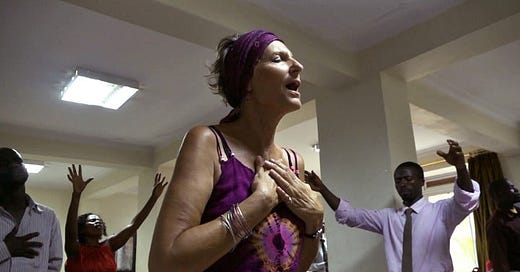The Persistence of the Bizarre: On the 40th Anniversary of ‘General Idi Amin Dada: A Self-Portrait’
Looking retroactively at General Idi Amin Dada: A Self-Portrait is an odd undertaking. One would think that Barbet Schroeder’s landmark documentary would be less resonant now, 35 years after the dictator’s removal from power and over a decade since his death. To a certain extent, that’s true. The chill of watching the ramblings of a man currently, immed…
Keep reading with a 7-day free trial
Subscribe to Nonfics to keep reading this post and get 7 days of free access to the full post archives.



